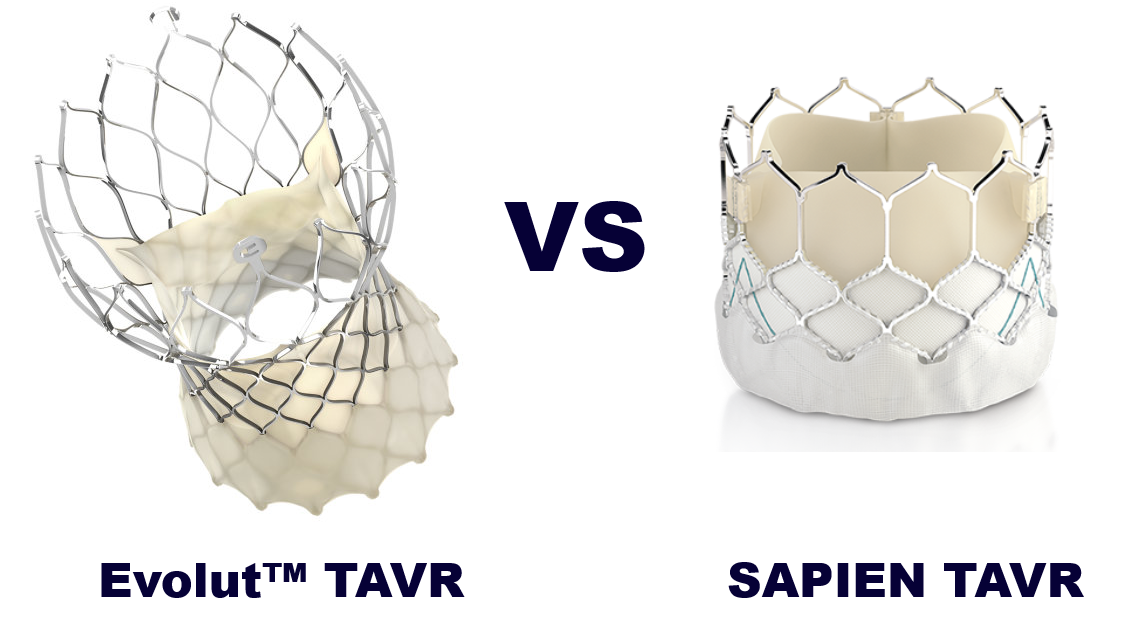
GALWAY, Ireland and WASHINGTON, March 9, 2025 /PRNewswire(opens new window)/ -- Medtronic plc (NYSE: MDT), a global leader in healthcare technology, today released the two-year results of the SMall Annuli Randomized To Evolut or SAPIEN (SMART) Trial, the largest international head-to-head comparative trial of transfemoral transcatheter aortic valve replacement (TAVR). In patients with aortic stenosis and a small aortic annulus, results showed comparable composite outcome of mortality, disabling stroke, and heart failure hospitalization, and continued superior valve performance as measured by bioprosthetic valve dysfunction (BVD) at two years for Evolut™ TAVR compared to SAPIEN™. The late-breaking science was presented at the Cardiovascular Research Technologies (CRT) 2025 conference in Washington, D.C.
"Valve performance is critical for all patients, but the impact of poor valve performance is magnified in patients with a small aortic annulus, who are at risk of receiving a valve that is not adequate for their cardiac requirements," said Howard C. Herrmann, M.D., Perelman School of Medicine at the University of Pennsylvania, and lead investigator of the trial. "The two-year results highlight the continued superior performance of the Evolut TAVR valve in these patients. While we would not yet expect to see a significant difference in the composite clinical outcomes at this early stage, valve performance provides important data that operators can use to inform and personalize treatment decisions to enhance patient outcomes."
The SMART two-year data demonstrated that Evolut TAVR continues to show significantly less BVD, which can be a predictor of adverse outcomes1, compared to SAPIEN TAVR. Additional results demonstrated that Evolut TAVR showed the following relative to SAPIEN TAVR:
- Five times less prosthetic valve thrombosis (p=0.0048)
- Nine times less hemodynamic structural valve dysfunction (defined by mean gradient ≥ 20mmHg; p<0.001)
These results build on additional data of Evolut BVD performance in small and large annulus patients, which will be presented as a late-breaker at CRT today, and the Evolut BVD pooled analysis by Dr. Steven Yakobuv published in the Journal of the American College of Cardiology(opens new window).
The SMART Trial is an international, prospective, multi-center, randomized (1:1) post-market trial comparing the safety and performance of Evolut self-expanding TAVR versus SAPIEN balloon-expandable TAVR in patients with symptomatic severe aortic stenosis (AS) and small aortic annulus. The trial, the largest head to head randomized control trial to primarily enroll women, randomized and treated 716 patients, 87% of which were women, across more than 80 sites worldwide.2 Eligible patients had an aortic valve annulus area of ≤430 mm as measured by computed tomography, and suitable anatomy for transfemoral TAVR with both an Evolut PRO/PRO+/FX or a SAPIEN 3™/3 Ultra™ valve. Patients enrolled in the trial will continue to be followed out to five years.
"The SMART Trial is a groundbreaking, head-to-head comparison that, for the first time, highlights how a patient with a small annulus can benefit from Evolut's differentiated valve design," said Kendra J. Grubb, M.D., M.H.A, M.Sc., vice president and chief medical officer, Structural Heart, which is part of the Cardiovascular Portfolio at Medtronic. "At two years, we continue to see superior valve performance that we will follow to assess long-term outcomes."
